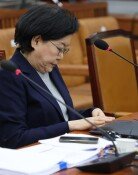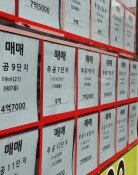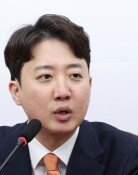Trump to impose 25% tariff on all imported cars and auto parts
Trump to impose 25% tariff on all imported cars and auto parts
Posted March. 28, 2025 07:26,
Updated March. 28, 2025 07:26
U.S. President Donald Trump announced that a 25% tariff will be levied on all imported cars and key automotive parts beginning April 3, marking the most significant protectionist measure since tariffs were imposed on steel and aluminum. With automobiles and parts ranking as South Korea’s first and third largest exports to the United States, respectively, the country’s auto industry and broader economy are bracing for severe impact. April 2 has been dubbed the “Day of Liberation,” as the U.S. is set to begin implementing reciprocal tariffs, in line with prior warnings. The Trump administration’s trade and tariff campaign appears to be reaching its apex, with sweeping implications for global commerce.
In announcing the tariff decision on March 26, President Trump emphasized its permanence, calling the move “exciting” and promising it would bring jobs and prosperity back to the U.S. economy. “There will be no tariffs if cars are produced in America,” Trump said, reiterating his message that relocating production to U.S. soil is the only path to exemption.
South Korea's automobile industry, heavily dependent on the U.S. market—which accounts for over half of its exports—is expected to be hit particularly hard. Industry experts estimate the new tariff could slash annual car exports by more than 9 trillion won. GM Korea, which exports 90% of its production to the U.S., is reportedly weighing the possibility of pulling out of South Korea altogether. Hyundai Motor Group, which recently pledged significant new investment in the United States, may still require time to ramp up domestic U.S. production, leaving it vulnerable in the short term.
More concerning is the wider ripple effect the tariffs are expected to have across the automotive supply chain. High tariffs on critical components such as engines, transmissions, and powertrain parts threaten to severely damage South Korea’s parts industry, which is composed largely of small and medium-sized enterprises. The blow to this core manufacturing sector could escalate beyond reduced exports to a systemic crisis in the nation’s broader industrial base.
Hyundai Motor Group Chairman Chung Eui-sun, speaking at a groundbreaking ceremony for a new U.S. plant, acknowledged the limits of private-sector influence, stating, “Tariffs are a matter of state-to-state negotiation. A single company’s investment cannot significantly sway tariff policy.” With acting President Han Deok-soo back at the helm, calls are growing for the Korean government to quickly open high-level negotiations with Washington. Experts warn that the escalating trade confrontation will not be resolved in a single round and urge coordinated efforts from both the public and private sectors to find a viable path forward.







